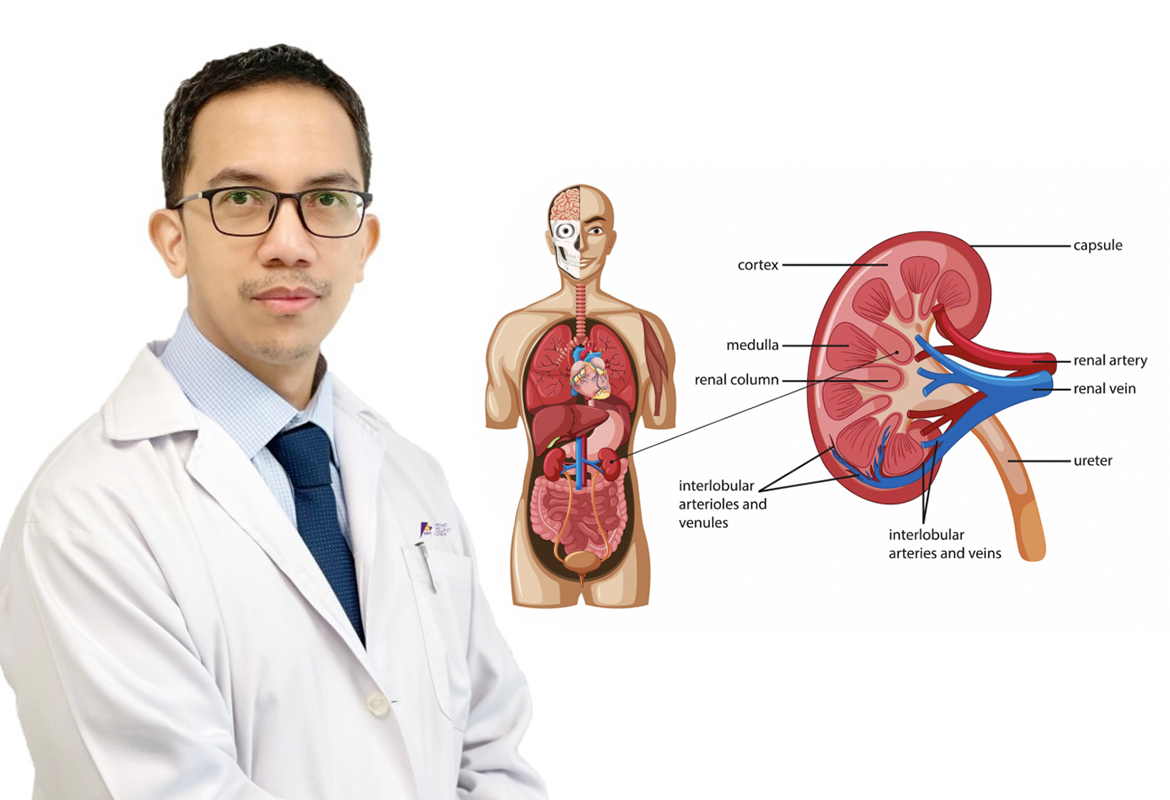Every year, over 8000 cases of end stage kidney disease (ESKD) are reported in Malaysia, with Selangor topping the list, accounting for around 20% of the total according to
Dr Muhammad Iqbal Abdul Hafidz, Head of the Department of Nephrology and Kidney Transplant Programme at Universiti Teknologi MARA (UiTM). He highlighted that kidney failure among Malaysia’s younger age group is worrying, and the number of people suffering from kidney disease continues to rise. Malaysia ranks 8th globally in cases of ESKD with approximately 45,000 patients having to undergo dialysis treatment. Medical experts have predicted that around 106,000 Malaysians would be suffering from kidney failure by the year 2040. The saddening fact is that 30% of those are Malaysians under the age of 55 years.
Dr Muhammad Iqbal believes in the possibilities of organ transplant in Malaysia, particularly kidney transplant. Unfortunately Malaysia has one of the lowest rate of organ donation and transplantation in the world. That is why, in 2017, he started the transplant programme in UiTM He is also passionate about increasing awareness on this issue and started the concept of “Fikir Transplant,” which strives to spread awareness about organ donation and transplantation. It is basically a call to both the public and the health care professionals to start thinking about this complex topic and learn more about it.
Acknowledging people not fully understanding the benefits of transplantation, he explained that it is actually the best treatment for ESKD patient as it provides a better quality of life compared to being on dialysis. Dr Muhammad Iqbal, expressed high hopes that more Malaysians would pledge to become an organ donor. For those who have a family member with ESKD, they may consider becoming a donor as it is more acceptable and easier for the body to adapt due to similar genes shared among family members. He said, “A kidney transplant from a living relative has the greatest chance of a successful surgery as family members specifically siblings are the most compatible for an organ transplant”.
According to Islamic scholars, organ transplantation is encouraged (permissible) and regarded a holy deed that would considerably benefit people in need, as long as it does not cause any harm to both parties. When it comes to the advantages of being an organ donor or a recipient, both have the same goal in mind: “to live.”
Dr Muhammad Iqbal emphasised the importance of annual screening with a simple blood and urine test, since kidney disease often do not have symptoms. He added that one of the primary causes of kidney failure is long-term usage of drugs and supplements unapproved by the Ministry of Health (MOH), which may damage eventually cause the kidneys to fail. People who have diabetes and high blood pressure are also at a higher risk of developing kidney failure.
Aside from that, a healthy diet is very important to guarantee one’s health is at optimum level. There are no specific diet to avoid, but individuals with diabetes and high blood pressure should limit their intake of sugary, salty, and unhealthy foods.
Dr Muhammad Iqbal also established specialised dialysis centres in Selayang, Sungai Buloh, and Puncak Alam which offers hemodiafiltration, a type of dialysis which have been shown to be beneficial in patients with heart disease. Additionally, the nephrology unit also offers peritoneal dialysis which is a home-based dialysis therapy.
Universiti Teknologi MARA and Universiti Malaya are the only two university hospitals which offer kidney transplant. UiTM have helped patients as far as Johor and Sabah to get a kidney transplant. UiTM Hospital has a bed capacity of 400, 98 specialised clinics, 17 operating theatres and wards, and 16 dialysis chairs. Together with the Faculty of Medicine, the hospital provides complete facilities for the most latest academic and research activities in science and medicine.


